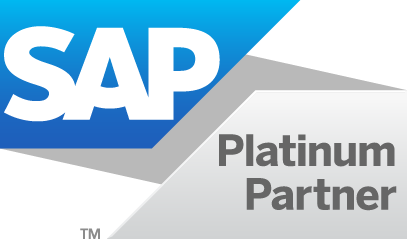Introduction
In this article, we’ll cover the fundamental differences between an Enterprise Resource Planning (ERP) system and standalone accounting software, and help you decide which option might be most appropriate for your needs.

Firstly, there is a common misconception about the ERP system and accounting software. People generally think that an ERP is just another name for accounting software, but in reality, an ERP system is an entirely different piece of software.
It does share some common features of an accounting solution, but an ERP can provide functionality and value to your entire organization, whereas a standalone accounting solution is really just designed to be leveraged by your finance teams to cover basic financial requirements such as:
- Accounts payable
- Accounts receivable
- Revenue, Sales & Invoicing
- Financial reporting
On the other hand, the ERP system is a fully integrated system that deals with the functions of accounting software along with a whole host of other functions within a business. These include inventory and supply chain management, customer relationship management, online selling and buying, and warehouse management. It does not work for a specific area instead covers all areas of your business.

What is Accounting Software?
An accounting software deals with the financial and cost accounting activities of the business. These generally include functions that tend to be owned and sat within a finance department, for example:
- Accounts payable
- Accounts receivable
- Cash flows
- Ledger and balance sheets

Accounting software helps to speed up the collection and processing of key financial data so that the necessary financial reports can be streamlined. This includes reports such as:
- Balance sheets
- Income statements
- Statements of cash flow
- Profit and loss statements.
Having a technology solution that collects and stores this information can drastically improve an organization’s insight into their financial health, speed up decision making, and reduce the cost of administrative labor.
In short, it can give a snapshot of all the financial operations of a business. There are various accounting systems in the market that can help you, but the market leaders tend to comprise of Quickbooks and Xero.
What is Enterprise Resource Planning (ERP) software?
An ERP system is a software that covers the company’s financial management, supply chain management, and customer relationship management all in a single comprehensive, integrated system. It also includes the processes that are specific to the industry in which the company is operating. It can make your decisions fast and accurate. These days, many companies are using ERP systems to survive in a highly competitive environment. In short, ERP accounting software helps companies a lot in boosting their rate of productivity, transparency, scalability, efficiency, and effectiveness.
The SAP system is one of the best ERP systems that are perfect for small businesses. It can suit those businesses who want to improve their revenue and sales management, cash flow control and customer relationships. It can help in increasing the overall efficiency and effectiveness of the business.

The difference between an ERP system and accounting software
There is a number of differences between the two solutions, but the following comprise the core differences.
Scope of the software
The first differential point in the two systems is the scope. An ERP system has a broad range of functions when compared to accounting software as it not only focuses on the financial aspects but other factors as well.
If we take QuickBooks as an example, we can say that it works on a small stand-alone database. It cannot connect various real-time processes of the company. So, in this case, you need to use an integrated ERP system to handle the job. Moreover, with MYOB and Xero accounting solutions, you can only manage inflows and outflows of cash and generate reports of the financial year.
If we take an accounting module within an ERP solution, it manages the cash flows along with the response to real-time market trends confidently and swiftly.
Wide view of an enterprise
Another way to look at an ERP system is to consider the act of building a house with blocks of lego.

An ERP is a collection of all the operations of the business that gives a 360 view of the organization’s health and performance. Lots of lego blocks brought together into a complete house.
On the other hand, a dedicated accounting solution is really just a single lego block.

It tells you the financial performance of the business, but it’s isolated to basic financial reporting, and often not real-time.
Meeting industry-specific needs
Accounting software has a limited ability to meet industry-specific needs as compared to an ERP system. Many ERP vendors such as SAP have built industry-specific solutions that are tailored to the market needs of specific industries. For example, the needs of a retail store will differ dramatically to that of an organization operating in manufacturing. Accounting solutions rarely adapt by industry, you pay for licenses and you access the software usually via the cloud, but the customization is limited. An ERP system can be deployed and customized to your industry needs.

Why is an ERP better than accounting software?
The truth, it comes down to your business needs. In some situations, you may only require an accounting solution to handle basic financial data capture and reporting, but if you require more, then an ERP is really the only way to go.
An ERP will enable far greater integration of business operations into a single system, including aspects such as inventory and warehouse management, customer relationship management, supply chain, etc. All these aspects are currently not possible through a standalone accounting solution.

If you’d like to learn more about how an ERP system could potentially benefit your company, please feel free to get in touch for a no-obligation discussion.
Alternatively, you may read our explanatory article on Autocount Accounting Software vs. SAP Business One ERP Solution. That article further illuminates the differences between ERP and accounting software. Besides that, it compares the 2 popular solutions available in the market.

















